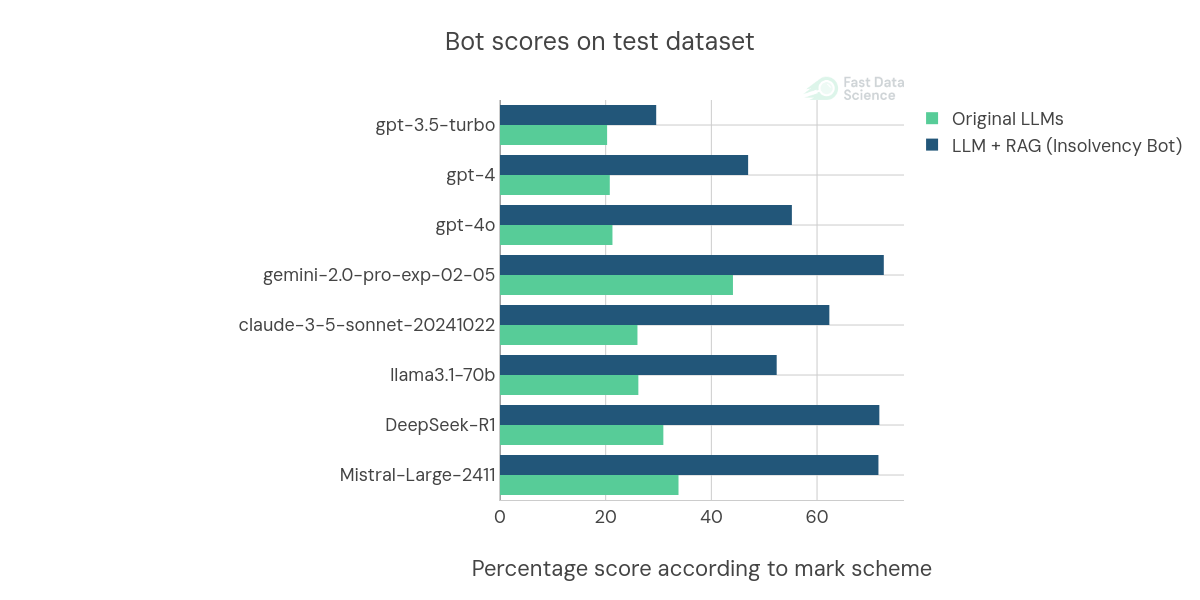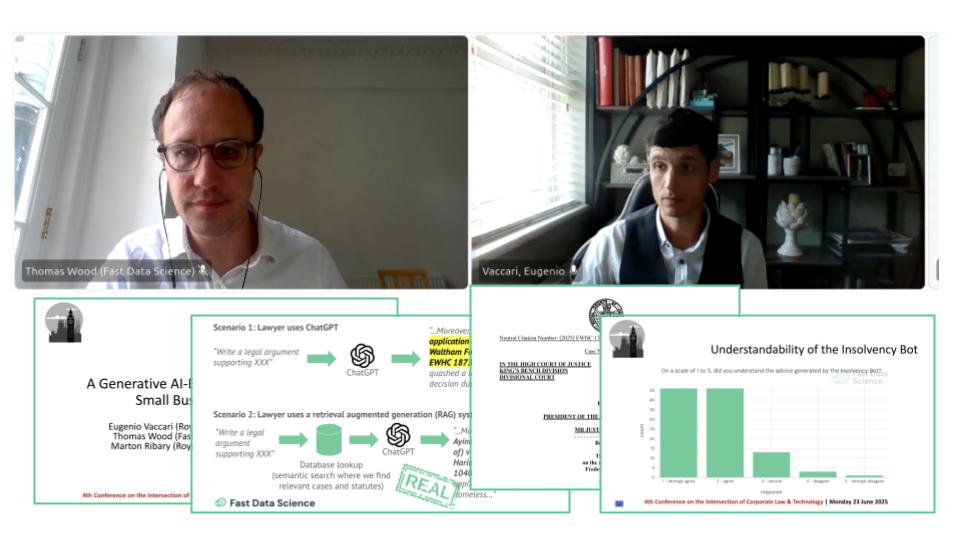
Can AI handle legal questions yet? We have compared the capabilities of the older and newer large language models (LLMs) on English and Welsh insolvency law questions, as a continuation of the Insolvency Bot project.
Thomas Wood tried asking several LLMs a series of questions about insolvency law set by insolvency expert Eugenio Vaccari, designed to be about undergraduate level. We tested older LLMs such as GPT-3.5 as well as newer entrants such as DeepSeek.
We tried using the LLMs “off the shelf” with no modification (our control), and then as a comparator, we also tried including relevant English and Welsh case law, statutes, and forms from HMRC in the prompt. For an example, instead of asking an LLM
I have X debts and Y happened. Should I close my company?
we can ask the LLM,
The Insolvency Act 1986 Section 123 states that [paragraph]. The Companies Act 2006 Section 456 states that [paragraph]. This Supreme Court ruling is relevant: [ruling]. I have X debts and Y happened. Should I close my company?
In other words, we do the legwork of looking up the relevant information and stuffing it into the prompt, and the LLM just has to do what it’s good at, namely formulating sentences. This technique of adding extra text to a prompt is called retrieval augmented generation, or RAG. What’s cool about RAG, is that the user doesn’t need to see it.
We found that over the last few years, the more advanced LLMs have actually had a bigger improvement due to the extra information that we included in the prompt. LLMs are constantly improving in their unmodified form, but you can see clearly in this time series plot that RAG has become more effective over time.
The models released in 2025, such as DeepSeek and the current iteration Gemini, now outperform the earlier GPT-3.5 by a large margin. This was not surprising. But what is unexpected is that the RAG-augmented models have even more of an edge over their non-RAG counterparts, than they did one or two years ago.
So we built a RAG system long before Google Gemini or DeepSeek came out, and it has performed far better on those models than on any model we had access to back in 2023 when we developed the system. Any ideas why this could be? Contact us and let us know your thoughts!
The pace of improvements is also astounding. Could we be facing a new Moore’s law in AI?
You can read our original paper (which predates the release of DeepSeek) here:
And you can try the Insolvency Bot here: https://fastdatascience.com/insolvency
Dive into the world of Natural Language Processing! Explore cutting-edge NLP roles that match your skills and passions.
Explore NLP Jobs
Senior lawyers should stop using generative AI to prepare their legal arguments! Or should they? A High Court judge in the UK has told senior lawyers off for their use of ChatGPT, because it invents citations to cases and laws that don’t exist!

Fast Data Science appeared at the Hamlyn Symposium event on “Healing Through Collaboration: Open-Source Software in Surgical, Biomedical and AI Technologies” Thomas Wood of Fast Data Science appeared in a panel at the Hamlyn Symposium workshop titled “Healing Through Collaboration: Open-Source Software in Surgical, Biomedical and AI Technologies”. This was at the Hamlyn Symposium on Medical Robotics on 27th June 2025 at the Royal Geographical Society in London.

We presented the Insolvency Bot at the 4th Annual Conference on the Intersection of Corporate Law and Technology at Nottingham Trent University Dr Eugenio Vaccari of Royal Holloway University and Thomas Wood of Fast Data Science presented “A Generative AI-Based Legal Advice Tool for Small Businesses in Distress” at the 4th Annual Conference on the Intersection of Corporate Law and Technology at Nottingham Trent University
What we can do for you